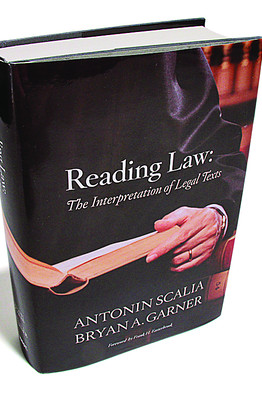In “Reading Law,” Supreme Court Justice Antonin Scalia and legal writer Bryan A. Garner argue for paying close attention to the original meaning of the words in the Constitution and other legal documents.
(published in The Wall Street Journal, August 29, 2012)
By DAVID B. RIVKIN JR.
For many years now, a debate has raged over how best to interpret the Constitution and other canonical legal texts. One way of grouping the warring parties is to divide them according to their views of writing itself—the words on the page. The textualists feel a strong loyalty, even a moral commitment, to the words themselves and the meanings they were intended to convey. The non-textualists have a very different approach, guided by a peculiar view of democratic society and the law.
Like the government in Anthony Burgess’s “A Clockwork Orange”—setting out to adjust the behavior of inherently flawed men and women—non-textualists see the American electorate as a collection of people in need of improvement and democracy as too error-prone to do the job. Their solution is to vest judges with the ability to “adjust” the law in order to ensure a more “progressive” direction, loosely interpreting the wording of statutes and the Constitution and sometimes disregarding the wording entirely. The result is a search for non-democratic shortcuts as the best way to promote fairness and social justice.

